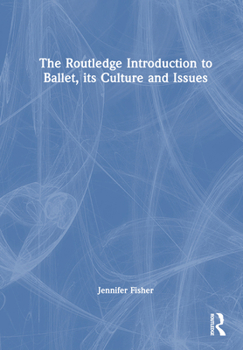The Routledge Introduction to Ballet, Its Culture and Issues
Select Format
Select Condition 
Book Overview
As an introduction to ballet's history, culture, and meanings, this book draws on the latest ballet scholarship to describe the trajectory of a dance form that has risen to global ubiquity and benefited from many diverse influences along the way.
Organized around themes, the book explains how the manners, style, and hierarchies of ballet became such a strong part of its DNA. It addresses the origins of ballet's aristocratic vocabulary and the ways in which it may be interpreted now, incorporating meanings that range from the aesthetic to the spiritual and the political. The Routledge Introduction to Ballet, its Culture and Issues explores how dancers and audiences have experienced ballet, how popular films have represented it, and who has been excluded and how that could change. The chapters highlight the people, institutions, and works that helped to establish ballet's reputation, while also uncovering lesser-known influences and new ways of interpreting ballet. Lists of research resources--further readings, documentary films, and dance feature films--offer starting points for further avenues of learning. This book's central premise is that all dance reflects the culture in which it develops and is capable of embodying and disseminating new ideas.
This is the definitive introduction for anyone drawn to ballet or seeking to understand it, and those looking to develop a thorough understanding of how ballet developed, the cultures that formed it, and what it can mean for today's audiences, artists, and scholars.





